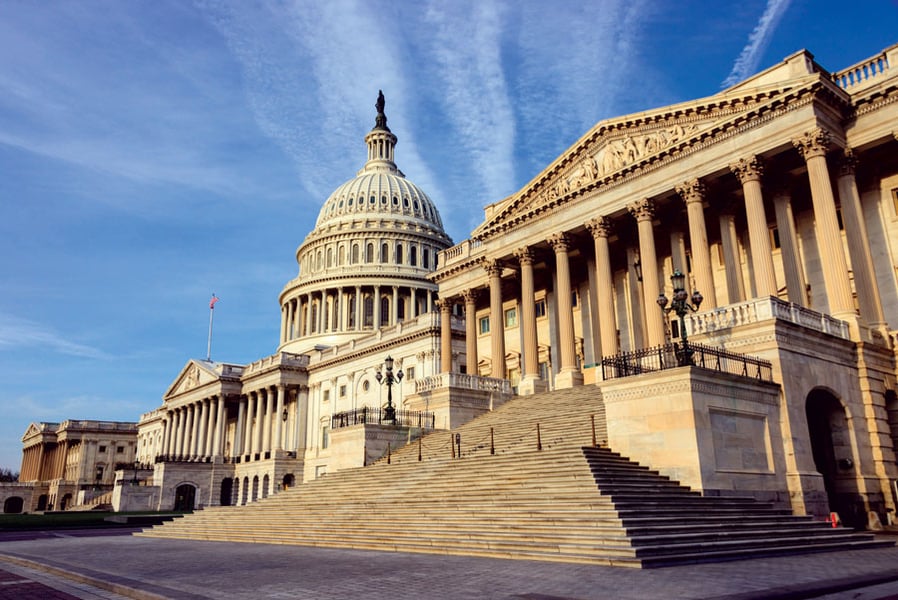

The House Ways and Means Committee approved legislation last week requiring small businesses to provide retirement plans for employees, but lobbyist groups say the measure could steer potential clients away from the advice industry.
The national auto-IRA legislation requires businesses with five or more employees to offer individual retirement accounts, akin to 401(k) plans, and would impose a tax on businesses that don’t comply. The measure also provides tax credits to offset the costs.
The state-level involvement, however, squeezes some financial advisers out of the planning process, according to industry groups like the Financial Services Institute. With accounts mandated by the federal government, the measure would effectively remove advisers that would otherwise be needed to create the retirement accounts themselves.
What is well documented is the millions of Americans that need significant help to hit their retirement savings goals. The median account balance for individuals aged 55 to 64 is $84,714, according to an analysis by Vanguard, a worrying data point. California, Illinois and Oregon have only collected about $300 million in total assets in state-facilitated retirement plans.
Retirement accounts at the national level must deduct 6% of wages from paychecks, rising to 10% over several years, and provide safe harbor for existing state-level auto-IRAs. FSI claims the measure doesn’t address the main cause of the retirement crisis: Americans simply don’t have enough money to save for retirement in the first place.
But if advanced, these bills may actually present an opportunity for retirement plan advisers, while also helping Americans reach financial security. The legislation is an opportunity to help small businesses sort out how to effectively, and cost efficiently, open IRA plans, and it could spur wealthy business-owner clients to seek help from their financial advisers.
The bill drew support from the American Retirement Association, for example, which cited estimates showing an additional 62 million retirement savers and $7 trillion in retirement assets if the bill passes into law.
While those benefiting from auto-IRAs would most likely be low-income earners, there would still likely be an influx of folks looking for advice. The bill may wind up generating more investment-advice clients, as they get into the habit of saving for retirement, and as their safety nets grow, so too does the need for additional guidance, wrote InvestmentNews senior reporter Mark Schoeff Jr. who reported on this issue in last week’s edition.
In fact, proponents of the rule and state-level action to build these auto-IRAs point to one overarching fact: Roughly a third of Americans don’t have access to a workplace retirement plan, a proportion that has remained stagnant for years, according to data from the Department of Labor.
That has been exacerbated amid the pandemic with four in 10 workers now reporting that their household experienced income or job loss in the past year, and half of those report feeling less confident they will have enough money for a comfortable retirement, according to an Employee Benefit Research Institute survey.
While the new programs has the potential to hurt some retirement plan advisers, there are still opportunities to get involved and help clients, especially small-business owners, navigate the proposed legislation. If nothing else, it could bring in trillions of net new assets into retirement accounts and help millions more Americans live comfortably in their golden years.

Canadian stocks are on a roll in 2025 as the country prepares to name a new Prime Minister.

Two C-level leaders reveal the new time-saving tools they've implemented and what advisors are doing with their newly freed-up hours.

The RIA led by Merrill Lynch veteran John Thiel is helping its advisors take part in the growing trend toward fee-based annuities.

Driven by robust transaction activity amid market turbulence and increased focus on billion-dollar plus targets, Echelon Partners expects another all-time high in 2025.

The looming threat of federal funding cuts to state and local governments has lawmakers weighing a levy that was phased out in 1981.
RIAs face rising regulatory pressure in 2025. Forward-looking firms are responding with embedded technology, not more paperwork.
As inheritances are set to reshape client portfolios and next-gen heirs demand digital-first experiences, firms are retooling their wealth tech stacks and succession models in real time.
